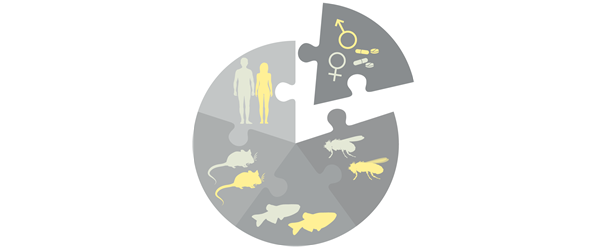The transcription factor Myc regulates the expression of genes that promote cell proliferation and growth. Mutations in, and overexpression of, Myc are closely associated with many types of cancer, making it a seemingly attractive target for therapeutic inhibition. However, there are concerns that anti-Myc therapy would result in a multitude of undesirable side effects since normal cells rely on Myc-regulated pathways for proliferation during tissue turnover and regeneration. Technical issues in the selective inhibition of Myc have also impeded progress in this area.
Researchers at the University of California, San Francisco (UCSF) have tested the effects of a systemic, dominant-interfering mutant of Myc on normal versus cancer cells in a mouse model of Kras-induced lung adenocarcinoma. Using a switchable expression system they show that even established lung tumors regress in the presence of the dominant-interfering Myc mutant. Myc inhibition also affected normal, continuously proliferating tissues, causing thinning of the epidermis, inhibition of hair growth, testicular atrophy and erosion of intestinal villi. However, animals tolerated these side effects well and quickly recovered following reversal of mutant expression. Thus, this work suggests renewed potential for anti-Myc therapy for cancer despite anticipated side effects.







